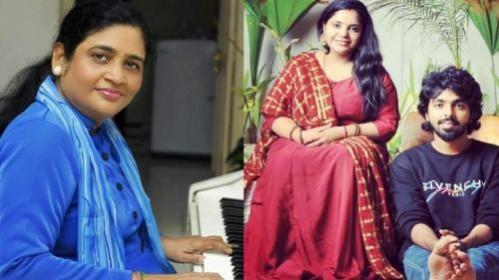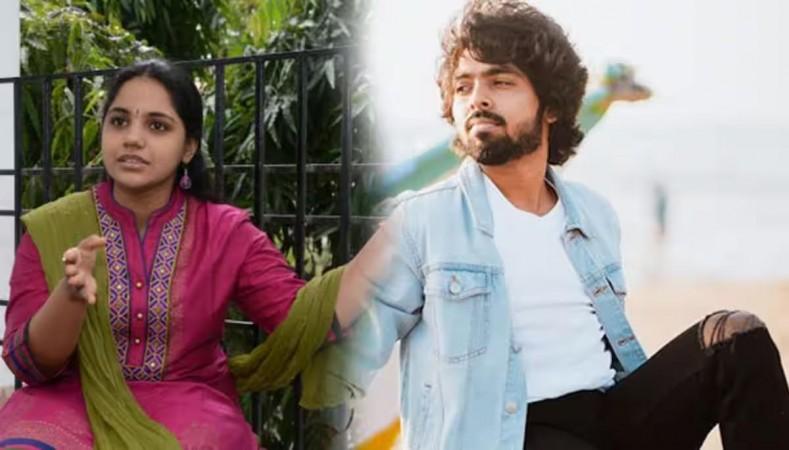
GV Prakash and Saindhavi shocked everyone when they announced their divorce in May of this year ending their marriage of over 11 years. The couple who have a daughter named Anvi shared their decision on social media. Now a few months after their split GV Prakash's mother A. R. Reihana opened up about their divorce during an interview.
Speaking on the Galatta podcast, Reihana who is also a singer, expressed her deep admiration for her former daughter-in-law Saindhavi. She said "Saindhavi is a wonderful person. I don't understand why things turned out this way. I would love for her to come back home but what can I do? When they were together I couldn't imagine them separating. Now that they are apart, my wish for them to reconcile won't change anything. It's all up to fate and I had no role in this."

Reihana also shared how close she feels to Saindhavi even suggesting that her bond with her is stronger than with her daughter. She went on to say "When my son explained the reasons behind the divorce they were difficult for me to accept but they made sense to him." This was the first time Reihana had spoken publicly about her son's divorce revealing her personal feelings on the matter.
For those unfamiliar with the couple's history, GV Prakash and Saindhavi had known each other for over 20 years. They attended the same school and eventually began dating. The couple married in 2013 and welcomed their daughter Anvi in 2020. Their relationship appeared strong but on May 13 of this year, they announced their decision to separate.

In their announcement, GV Prakash and Saindhavi explained that their divorce was for the sake of their mental peace and personal well-being. They also requested privacy from their media friends and fans as they navigated this challenging time.
After the announcement, both GV Prakash and Saindhavi faced negative reactions and harsh comments on social media. The criticism affected them deeply, leading them to release statements urging people to stop spreading hate. The couple made it clear that this was a personal matter and they needed support, not judgment during this period.


!['Had denied Housefull franchise as they wanted me to wear a bikini': Tia Bajpai on turning down bold scripts [Exclusive] 'Had denied Housefull franchise as they wanted me to wear a bikini': Tia Bajpai on turning down bold scripts [Exclusive]](https://data1.ibtimes.co.in/en/full/806605/had-denied-housefull-franchise-they-wanted-me-wear-bikini-tia-bajpai-turning-down-bold.png?w=220&h=135&l=50&t=40)





!['Had denied Housefull franchise as they wanted me to wear a bikini': Tia Bajpai on turning down bold scripts [Exclusive]](https://data1.ibtimes.co.in/en/full/806605/had-denied-housefull-franchise-they-wanted-me-wear-bikini-tia-bajpai-turning-down-bold.png?w=220&h=138)
!['Had denied Housefull franchise as they wanted me to wear a bikini': Tia Bajpai on turning down bold scripts [Exclusive]](https://data1.ibtimes.co.in/en/full/806605/had-denied-housefull-franchise-they-wanted-me-wear-bikini-tia-bajpai-turning-down-bold.png?w=220&h=135)


![Nayanthara and Dhanush ignore each other as they attend wedding amid feud over Nayanthara's Netflix documentary row [Watch]](https://data1.ibtimes.co.in/en/full/806599/nayanthara-dhanush-ignore-each-other-they-attend-wedding-amid-feud-over-nayantharas-netflix.jpg?w=220&h=135)